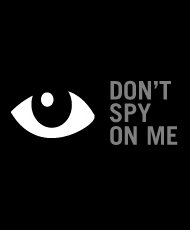
Government power that operates unchecked behind closed doors is inevitably abused. The recent disclosures about the secret NSA surveillance programs prove this maxim.
The news gives the public a long-overdue opportunity to consider the massive quantity of information that the government is collecting, how it is collecting the information, and what means of oversight are in place. In all three areas, the government comes up short.
Thanks only to a whistle-blower, we now know the National Security Agency has collected an extraordinary amount of data about U.S. citizens over the past seven years, often in violation of our basic constitutional rights.
Under one program, Verizon has been supplying the NSA with telephone “metadata” of its users on an ongoing daily basis. Metadata information reveals the phone numbers you called, how long and how often you called them and from where you called.
The government argues that this collection is not problematic because it is only receiving transactional data about our calls, not the actual content of our communications. But this data is far from innocuous. It actually contains a wealth of highly personal and sensitive information.
Who we call and how frequently we speak to certain people can reveal a lot about us — such as our sexual orientation, whether we have cancer or other health problems and what political and religious groups we are involved with. Even a single call to an abortion clinic or a whistle-blower hotline can expose highly personal information. In some cases, phone records may hold more critical information than the calls themselves. The phone records of, say, journalists who expose government wrongdoing would be particularly sensitive.
Secret collection of our information may also reach much further than just calling records. There’s no reason to think that the government has not also been collecting metadata from our Internet service providers. This metadata can include information about whom you email as well as the websites you visit. The government has argued that website URLs should be considered transactional data — which is a big concern for a surveillance program since these could reveal highly sensitive information about a person: a visit to www.seattledivorceservices.com, or www.mayoclinic.com/health/alcoholism/DS00340.
Under our Constitution, the government can only collect personal information when it has probable cause to believe a specific individual or group has done or is planning to do something illegal. But the Verizon program means that the government has switched from focusing on information about specific targets of investigations to mass collection of information.
The Verizon program was authorized under a section of the Patriot Act that allows the FBI to get a secret court order to collect “any tangible thing.” We now know that the government is interpreting this to permit the unlimited and untargeted collection of all calling records.
The unchecked acquisition of our calling records undermines basic rights to act freely in a democratic society. People may be more cautious about speaking out against government policies or contacting organizations the government may paint as controversial if the government itself is tracking such actions.
Indeed, this week the ACLU filed a lawsuit challenging the constitutionality of the recently revealed surveillance program. The nature of the ACLU’s work — we protect access to reproductive services, combat racial profiling, defend the rights of immigrants — means that many people who call the organization wish to keep their contact with us confidential. If the government is collecting a vast trove of ACLU phone records, many people may be reluctant to communicate with us.
This massive tracking program is also dangerous because of its secrecy. The Foreign Intelligence Surveillance Act (FISA) Court that approved the data collection convenes in secret, hears only from the government and rarely releases a public opinion. A secret form of judicial review is not an effective check on government power. Without public oversight or review there is simply no way to ensure that its decisions are fair and meet constitutional standards.
We have some real facts now, but must demand more. The ACLU has requested that the FISA Court release its opinions on the scope and interpretation of the Patriot Act.
It’s time to have a real informed public debate about the limits of government surveillance and a proper legal review of the government’s actions — the very checks and balances intended by the people who wrote our Constitution.
Protecting the nation’s security is vital. But that doesn’t mean we throw out the Bill of Rights in the process of defending it.




